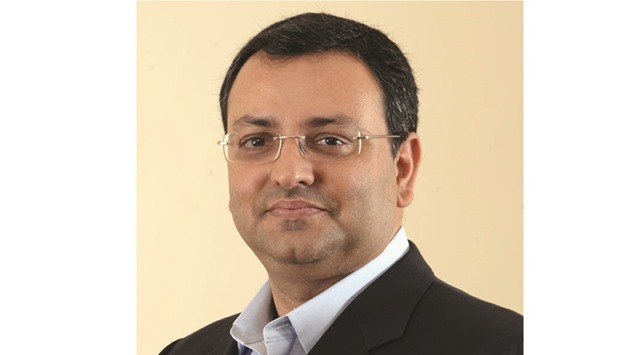As Cyrus Mistry reset course at Tata Sons Ltd – the holding company of India’s largest conglomerate – his relationship with his board and largest shareholders frayed to breaking point.
The Tata Trusts, which hold about 66% stake in Tata Sons, had no visibility into the company’s future cash flows and were starved of information on group units, people with knowledge of the matter said. The holding company was becoming increasingly dependent on dividend payouts by Tata Consultancy Services Ltd as contributions from other firms dropped dramatically, the people said, asking not to be identified because the information is private. Mistry also did not heed calls to remove some members of his Group Executive Council, even though staff costs doubled over his term, the people said.
Mistry remains chairman of numerous group companies while his predecessor Ratan Tata is at the helm of the holding company setting up the 148-year-old conglomerate for a drawn-out public battle between the two. Tata Sons, which said growing “trust deficit” resulted in Mistry’s removal, plans to propose extraordinary general meetings to remove the former head of the group from the chairmanship of group companies, people with knowledge of the matter said.
“How the group flies through this turbulence, will determine the way the group is perceived, and its terms of engagement with its stakeholders,” Institutional Investor Advisory Services Ltd, a proxy adviser, said in a note published on its website. A dual power structure “blurs the lines of accountability and creates confusion in the rank and file.”
A Tata group spokesman declined to comment, while Mistry’s spokesman pointed to a statement issued last week. The erstwhile chairman had ensured a sufficient flow of communication with Tata Trusts, said a person from Mistry’s office with knowledge of the matter. Ratan Tata was briefed about every development, the person said asking not to be identified as the person wasn’t allowed to speak to the media.
Mistry, who had been chairman for almost four years, said in an October 25 e-mail to the board that he hadn’t been given the opportunity to defend himself and warned the group may face Rs1.18tn ($18bn) in writedowns because of five unprofitable businesses he inherited. Mistry hadn’t disclosed these concerns to Tata Sons during his tenure, the people said.
VR Mehta, a trustee of the Sir Dorabji Tata Trust – one of the largest shareholders in Tata Sons – said there were several discussions that Mistry did not share with the charitable organisations in a timely fashion.
The share of dividend contributions to Tata Sons by companies other than TCS dropped from 18.4% in the year ending March 2013 to 8.9% in March of this year, while the holding company’s staff costs rose from about Rs870mn to Rs1.8bn over that period, the people said.
Tata Sons was not kept informed on some major decisions by operating companies, such as Tata Power Company Ltd’s acquisition of a 1.1 gigawatts solar and wind portfolio from Welspun Renewable Energy Pvt Ltd, the people said. They were informed of the deal only after the shareholders agreement was signed with Welspun, they said. The transaction was India’s biggest clean energy deal with an enterprise value of Rs92.49bn.
Mistry in the statement last week refuted claims that trustees of Tata Trusts weren’t informed about Tata Power’s acquisition.

Mistry: Refuting claims that trustees of Tata Trusts weren’t informed about Tata Power’s acquisition.
